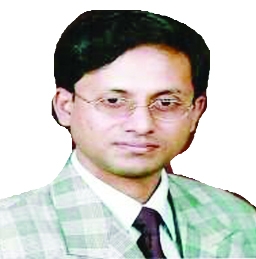
Prof Dr Mohammad Didare Alam Muhsin :
Every year 15th August comes back to us and brings back the unbearable pain concerned with the day to cause mourning and weeping. The admirers of Bangabandhu remember the tragedy of that day with broken hearts and tearful eyes. Doa-darood, miladmahfil, kangalibhoj (offering food to the poor) etc. are organised throughout the country seeking forgiveness of the souls of the martyred. Whole the country pays homage to Bangabandhu and his martyred family members with heavy mind through discussion, commemoration, and mourning gatherings. Almost half a century has passed after the incident, but the grief-stricken people still try to understand why the tragedy happened on that day by analysing it from various angles. What was the cause? Could this incident have been prevented? Does this incident indicate that there was a deficiency in the security measures taken for Bangabandhu? Or did he just have to be a victim of immense love for his people and childish blind faith in them? Finally, to what extent and how the fate of this newly independent country was affected by this incident?
The altercation of power is nothing new in human history. Even a few hundred years ago, it was hard to imagine that there could be a change of power without war or bloodshed. In fact, feuding and sometimes taking up arms against each other among members of the same royal family over the succession to power was a pretty common phenomenon. In today’s world, revolutionary advances in education and the introduction of peaceful transitions of power in democracies in a significant part of the world have reduced, but not completely stopped, such bloodshed. The peculiarity of the August 15, 1975 tragedy was that on that day Bangabandhu along with his wife, sons including his child Rasel and daughters-in-law – none escaped the merciless bullets of the assassin. Only two daughters, Sheikh Hasina and Sheikh Rehana, and their families were lucky to survive being outside the country. There are not many examples of such brutal killings in history.
Historians and politicians may present multi-dimensional analyses from their respective positions while judging the tragedy of 15th August by the standards of history, but as long as this land called Bangladesh survives with its independent existence, 15th August will keep returning with special connotations to the people of this country. But, why? The most important thing is definitely that the way Bangabandhu made the emergence of independent Bangladesh inevitable in 1971, by awakening the strong desire for freedom among the people of this country, unequivocally makes him the greatest hero in the thousand-year history of the Bengali nation. In 2004, BBC Bangla conducted an audience poll to select “the Greatest Bengali of All Time’ and compiled a list of the top 20, in which Bangabandhu received the highest number of votes. Interestingly, Bangabandhu scored almost twice as many points as Ravi Tagore, who came second on the list. Since the struggle for independence against the British rule and later in the Pakistan period, the people of this region found many great leaders, like Nawab Sir Salimullah, Sher-e-Bangla AK Fazlul Haque, Huseyn Shaheed Suhrawardy and Maulana Bhashani, to lead their causes — all of whom were great guns in their own merits. But the way Bangabandhu Sheikh Mujibur Rahman was able to give language to the hopes and aspirations of the people of this region through his timely action plan at a pivotal moment of the nation raised him to such a high peak of popularity, which the people of this country have never seen before, and may not see in the future as well.
(The writer is Chairman, Department of Pharmacy, Jahangirnagar University).

